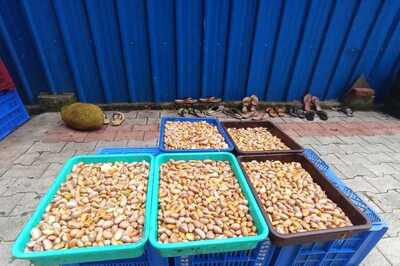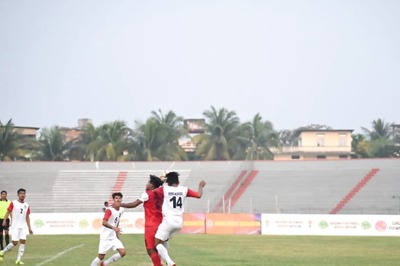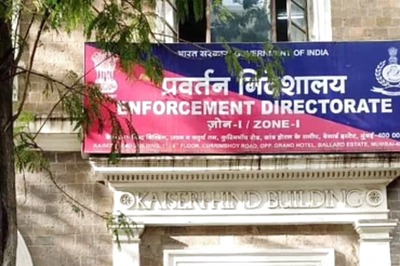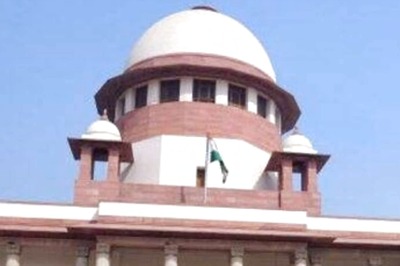
views
Kabul: The US ambassador to Afghanistan said on Saturday that it was unlikely that the slaying of 56 people at the Shiite shrine on a Muslim holiday would open up a new, sectarian front in the decade-long war.
An extremist group that has been blamed for many attacks targeting Shiites in neighboring Pakistan has claimed responsibility for Tuesday's suicide bombing in Kabul, raising fears it was trying to stoke Shiite-Sunni tensions in Afghanistan.
But Ambassador Ryan Crocker, a veteran diplomat who also served in Pakistan and Iraq, said he did not expect that to happen.
"I do not see this turning into a sectarian conflict just looking at the reactions on the part of the Shia leadership, calling for calm," he told reporters at the heavily fortified US Embassy in Kabul.
He also dismissed a report that the Pakistan-based Sunni militant group Lashkar-e-Jhangvi had a new wing in Afghanistan.
The BBC cited a man claiming to lead the new group and saying that Tuesday's bombing at the shrine was part of a new campaign to target Shiites in Afghanistan. The man, who gave his name as Ali Sher-e-Khuda, told the BBC that his group was inspired by Lashkar-e-Jhangvi.
"I am totally unaware of any Afghan affiliate," Crocker said. "I personally doubt very much that there is such a thing."
The bombing, which targeted Shiites commemorating the seventh century death of Imam Hussein, the Prophet Muhammad's grandson, killed 56 people and left more than 160 others wounded in what was the first major sectarian attack in Afghanistan since the fall of the Taliban regime.
The Afghan war has largely been spared sectarian violence, where civilians are targeted simply for their membership in a particular religious group. Tuesday's attack suggests that at least some militant groups may have shifted tactics, taking aim at ethnic minorities such as the Hazara who are largely Shiite and support the Afghan government and its Western partners.
Crocker said Afghan leaders from various ethnic factions showed they would not take the bait by standing united in condemning the attack.
"I am struck by the reaction - the Afghan reaction - which is what makes me think that whoever the architects were - they don't have much Afghan support," he said.
On Friday, more than 2,000 people converged under tight security in a field west of Kabul to mark the last day of the Shiite festival known as Ashoura. They voiced opposition to militant groups that they say have been given sanctuary in Pakistan.
"Pakistan is a supporter of the terrorists," said Mohammed Mohaqeq, a Shiite leader who has called for calm. "In the region, behind these terrorist networks is Pakistan."
Pakistani military spokesman Gen. Athar Abbas has dismissed any suggestions that Lashkar-e-Jhangvi has links to the government of Pakistan.
Asked if he believed the perpetrators were from Pakistan, Crocker said: "In my relatively limited time here, virtually every significant attack I'm aware of - where I have gotten some information - either came out of tribal areas in Pakistan or Baluchistan. There does indeed seem to be a pattern."
He said the attack could have been plotted by a consortium of militant groups, "but I don't think it was a consortium that was put together in this country."
Crocker also said he did not know whether the Pakistan-based Haqqani network, which is affiliated with al-Qaida and the Taliban, was involved. The Haqqani network has been blamed on several previous attacks in the Afghan capital.
"As we have all seen, the Haqqanis have been the most lethal, the most effective in delivering ordnance on target, but I've got nothing that says they were a part of this," he said.
Violence continued across Afghanistan on Saturday with five civilians reported killed in three separate explosions.
Sher Mohammad Arab, a well-known and respected former militant commander and Afghan government official, was killed and 16 other people were wounded in a bicycle bombing in the northern city of Kunduz, police spokesman Sarwar Hussini said.
A roadside bomb also struck a four-wheel drive taxi, killing three civilians in a rural area in the Khakrez district of Kandahar province in the south, according to provincial spokesman Zalmai Ayubi. In neighboring Maiwand district, an Afghan man was killed when his motorcycle hit a roadside bomb, Ayubi said.




















Comments
0 comment